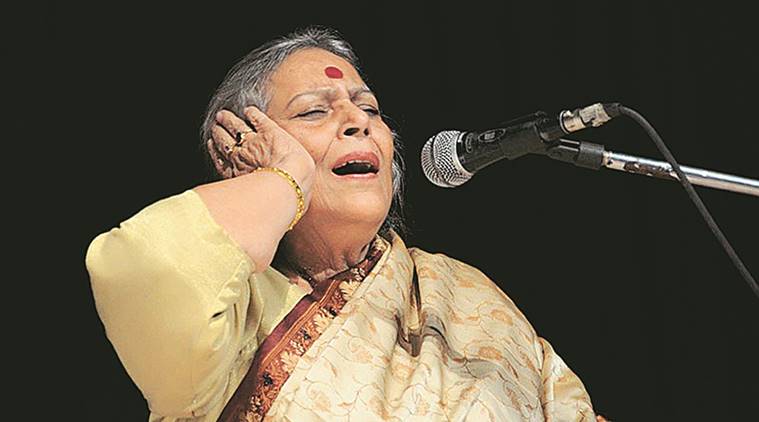Her Mother’s Daughter
Savita Devi, thumri queen Siddheshwari Devi’s daughter, on living in her mother’s shadow and lack of recognition for her work

Savita Devi
Ras ke bhare tore nain, aaye jaa saanwariya, tohe garva laga loon — a young Siddheshwari Devi had heard this famed thumri composed by legendary courtesan Gauhar Jaan once, and could not forget the impact this majestic piece in Bhairavi had on her. The sensuality of the lyrics, yearning to get lost in the beloved’s eyes and the abhinaya in the voice, led Siddheshwari to learn this thumri, a piece that later became synonymous with her name. Pt Ravi Shankar had once said of her thumris that they were so grand that they helmed along dhrupad, a form considered the epitome of Hindustani
classical music.
classical music.
Savita Devi, Siddheshwari Devi’s daughter, grew up listening to these songs and stories. Now, at 79, she feels she has just begun to understand the nuances of bhaav. “This is how long it takes to understand what thumri is. Now, when I sing, the pleasure of its presentation is so different,” says Savita, who will present the finale of the three-day thumri festival that opens today. Presented by Sahitya Kala Parishad and Government of Delhi, the festival will comprise a slew of young thumri artistes and musical maestros.
Growing up in Varanasi, Savita learned the form from her mother at their Kabir Chauraha address, Varanasi’s musical lane where many musical maestros lived and made music. She remembers her mother being extremely strict with her. “With others, she’d teach again. With me, she’d tell me to leave the room, practice 50 times and then come back. I think it’s because of that bit that I’ve been able to sing. I’m honoured to have lived in her shadow,” says Savita, who also trained in khayal gayaki besides mastering dadra, kajri, chaiti and hori. She received a fellowship from the Indian government to learn the sitar at Kinnara, Shankar’s institute, and has performed on stage with renowned artistes such as Kishen Maharaj.
It wasn’t just learning from her mother that helped. Growing up in a house frequented by legends such as Ut Vilayat Khan and Ut Bade Ghulam Ali Khan, among others, she would often hear them perform, between bringing paan for them. “No one had tea back then. It was mostly paan. I’d serve everyone and listen to what remains the teaching of a lifetime,” says Savita. Founder of Siddheshwari Devi Academy, she rues the lack of government recognition. “I’ve been recognised by some organisations, including Sangeet Natak Akademi. I have now come to believe that Indian government’s higher recognition is unlikely to be a part of my life. But I know the value of what I do have,” says Savita.
Savita Devi will perform on September 16, 6.30 pm onwards, at Kamani Auditorium. Entry is free.






















No hay comentarios:
Publicar un comentario